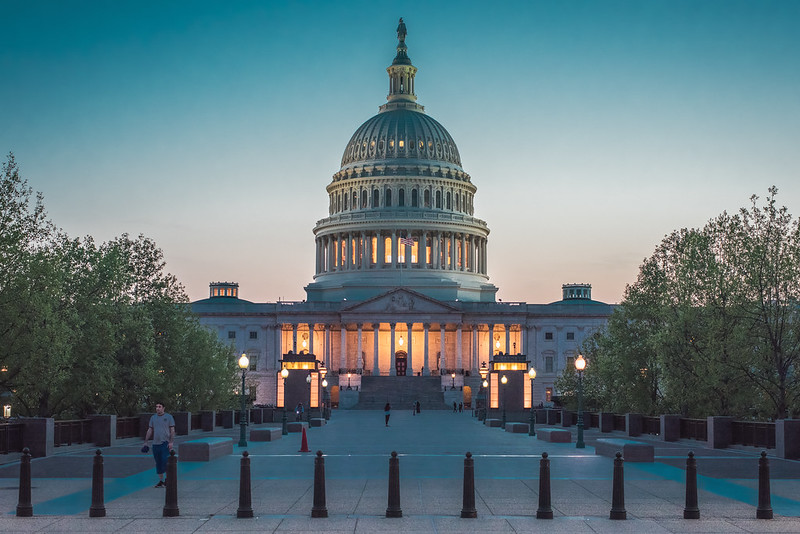
In 2016 Congress passed the Internet Tax Freedom Forever Act, meaning Americans will never face the threat of internet access taxes. On April 14, Bloomberg News published an article sympathetic to taxing Internet access.
With such a decisive victory for internet freedom, and while America is heavily relying on broadband networks to maintain some semblance of normalcy through COVID-19, why would this idea rear its ugly head? The supposed news hook is that six states with grandfathered access taxes – Hawaii, New Mexico, South Dakota, Ohio, Texas, and Wisconsin — must quit collection in July. But it isn’t the states, who have been preparing for this since 2016, raising the specter. It hardly accounts for 2% of their tax revenue.
The article includes quotations from left-leaning think tanks and professors and, curiously, from Avalara’s VP of U.S. Tax Policy. Avalara makes more money when the tax code becomes more burdensome and complicated. Internet access tax collection would be an opportunity to sell more tax collection software. Previously, Avalara promoted an online sales tax scheme that caused small businesses to suffer through the most complicated iteration of online sales tax collection possible.
The article did not quote any taxpayer groups.
When Congress initially passed the 1998 Internet Tax Moratorium, the internet was understood to have transformative potential and lawmakers actually practiced regulatory humility — “they knew what they didn’t know” — and rightfully decided to hold off on regulating it at the level of other familiar technologies, like landline phones. In the past two decades, the internet delivered on its potential and now practically every action that makes the economy tick involves the internet in some form.
Allowing states to tax internet access would set a dangerous precedent and could lead to a slippery slope of new taxes. If California can tax an individual’s access to the internet, a fundamental necessity in job searches, can they tax each email an individual sends once they get a job? As unreasonable as this sounds, California attempted to tax text messages as recently as 2018.
One look at the increases in wireless taxes, surcharges and fees makes clear that the internet would suffer much the same. Private sector competition has pushed wireless prices down 24 percent since 2018, but wireless taxes have increased by 44 percent, displacing competitive benefits. In 2019, people will be subject to an estimated $17.1 billion in taxes, fees, and government surcharges, a $1 billion increase from 2018. Wireless taxes slow down network infrastructure development and disproportionately hurts the poor, 67 percent of whom live in wireless households.
The Internet Tax Moratorium is about fostering the backbone of everyday life as the COVID-19 crisis dramatically proves. Congress repeatedly acknowledges that reliable internet access is fundamental for economic growth. It is necessary for work, school, or practically anything in modern society. Since 1998, Congress reauthorized the Internet Tax Moratorium more than a half-dozen times before making it permanent in 2016. Additionally, the FCC removed short-lived so-called net neutrality rules. While these rules were in effect from 2015-2016, annual capital investments declined for the first time since 2008-2009. After the repeal, broadband providers immediately increased investment with approximately $80 billion poured into the networks in 2018 alone.
Through light-touch regulation generally, the U.S. created broadband networks that are far superior to the rest of the world. Fortunately, going in to this crisis, as of mid-2018, 98.6 percent of Americans had access to a fixed network, and 99.8 percent had access to a mobile network.
COVID-19 caused a huge uptick in internet traffic.
Wireline broadband providers report that total traffic increased by a range of 17.3% to 37.4%, with an average increase of 25.5%. Major wireless carriers report mobile voice traffic increases during COVID-19 between 7% and 24.3%, while mobile data traffic usage has increased between 0.7% and 9.2%. For example, AT&T reported wireless voice up 28% and Wi-Fi calling minutes up 84% from the pre-crisis average usage baselines.
Our hugely successful internet connectivity comes from, among other policies, not taxing access and realizing the internet’s value increases as more people get online. It is unbelievable that Avalara, with the help of Bloomberg’s media empire, would promote the idea of increasing internet costs to Americans during COVID-19 for their own gain.

